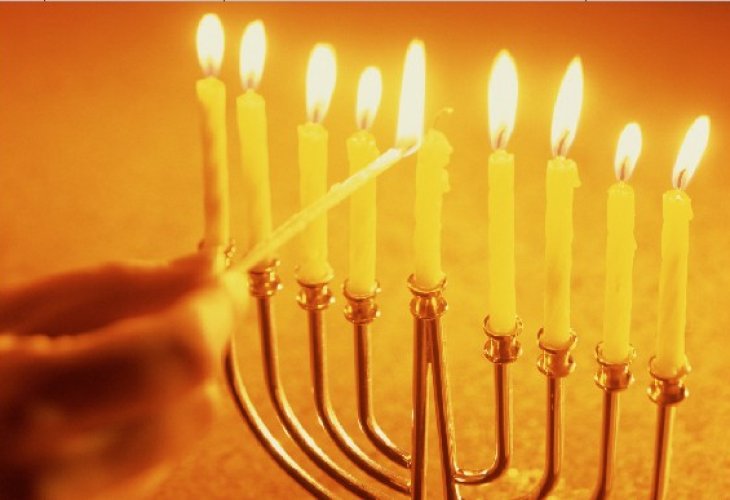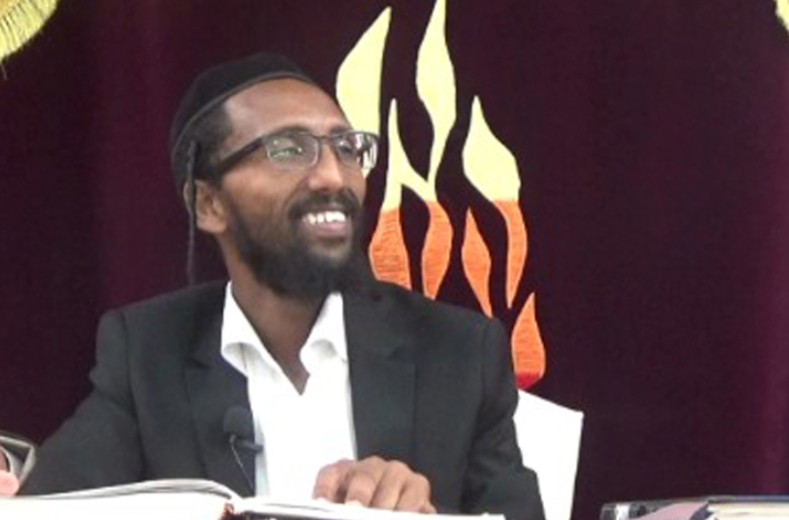The Fascinating Star of the Web: First Interview with Rabbi Baruch Gazahay
With an expanding circle of students, lessons across the country, and significant viral distribution, Rabbi Baruch Gazahay is establishing himself as one of the most intriguing rabbis in the Israeli return to faith movement. Exclusive interview.
 Rabbi Baruch Gazahay
Rabbi Baruch GazahayWhen it comes to rabbis, it's hard to overstate the importance of their ability to reach people, connect with them, speak to and about their hearts, and touch the souls of those who listen. This is especially true for those strengthening their faith and returning to religion. In any case, however you look at it, Rabbi Baruch Gazahay, a young and popular rabbi from Be'er Sheva, undoubtedly has this ability. This is likely one reason why his lessons and circles of influence continue to grow and his reputation precedes him.
Rabbi Baruch Gazahay (35) was born in Ethiopia and immigrated to Israel in 1981. In his youth, he attended a high school belonging to the Amit network in Be'er Sheva, where his family settled, consisting of two parents, five sons, and a daughter. Rabbi Gazahay is married and the father of four children—three daughters and a son. "I met my wife at 27, and we got married right away," he shares. "We decided to marry after meeting once. All subsequent meetings were for the protocol. I knew who she was before we met because she was our neighbor. My sister thought to introduce us, and by Hashem's grace, she succeeded. Incidentally, she is also married to a scholar today."
After high school, Rabbi Gazahay enlisted in the Duvdevan unit, the IDF's counter-terrorist unit. After his mandatory service, he served an additional year as an instructor officer. We'll return to military stories later, but now we'll proceed to the next station in his life. "After my discharge, I went to study law, but I quickly stopped. At that time, I also worked for the Ministry of Defense. Shortly afterward, I joined Rabbi Chajbi's 'Yismach Moshe' yeshiva in Be'er Sheva."
Shortly after starting regular studies, Rabbi Gazahay began giving lessons on ethics and Halacha at a synagogue near his home. "After several years in that synagogue, we were blessed to receive our own Beit Midrash, where we continue to study and teach today. It's called 'Od Yosef Chai,' named after the Ben Ish Chai and Maran Rabbi Ovadia Yosef. We study their books extensively. Additionally, Maran Rabbi Ovadia Yosef is the redeemer and savior of our community. He was the one who validated the Jewish identity of Ethiopian Jews."

Can the Rabbi share a bit about his personal journey to faith?
"My family has always been traditional. We kept Shabbat. Generally, most Ethiopians have maintained family purity, along with basic observance of Shabbat and kashrut. After my military service, my family and I returned to full observance of the faith. Thank Hashem, today my brother studies in a kollel, and my other siblings are also on a good path, as are my parents. As for what motivated me to take the first step, I can say I listened to a tape about faith and trust, and that inspired me to commit myself fully. That was exactly 13 years ago. By the way, speaking of studying faith and trust in Hashem, I want to say that it is a wonderful segula for finding a match. This, along with praying to Hashem from the depths of one's heart."
While pursuing his personal studies, which he conducts alone every day in a kollel from nine in the morning to six in the evening, Rabbi Gazahay has accumulated thousands of hours teaching across the country, gleaning important insights about life in general and issues related to the Ethiopian community specifically. Given his extensive work with returnees to faith, one of his key concerns is the importance of having a monitored, genuine, gradual, and proper return to religion: "I tell all returnees to faith—not to impose their return journey on others, not to try to fix the entire world. One should first fix oneself, and when Hashem wills, He will also help others. I highly recommend undertaking the process with a qualified, supportive rabbi. It's important for everything to be done gradually."
What are the Rabbinic insights into the major issues facing today's younger generation?
"The main issue is a significant lack of faith and trust in Hashem. This truth is the root of all evil, as well as permissiveness, envy, and so on. If people had more faith and trust in Hashem, many negative things would certainly be avoided—both in interpersonal relationships and in one's relationship with their spirituality. Despite this, the younger generation has great potential to do tremendous good. The central areas that need investment are love for Israel, loving one another, and being good humans. And this means love for the Torah and love for Hashem."
According to Rabbi Gazahay, he reaches out to all Israelis, and indeed, his lessons attract a diverse audience. However, by nature, Rabbi Gazahay's deep familiarity with the Ethiopian Jewish community is particularly significant, making his opinions on related issues very intriguing.
Does the Rabbi think that Ethiopian Jews are discriminated against in Israel, or do they receive fair treatment?
"That Ethiopian Jews are discriminated against is no secret. I definitely think they face discrimination. The community faces many challenges, and reality proves this. There's always another story heard. Maybe it's simply because we're seen as different. However, it's essential to remember that this is Hashem's decision. It's His will, and we don't question that. This doesn't mean we should accept it, but we should try to change it. It's a delicate boundary, but an important one. We have no questions for Heaven, and certainly no anger, but we have the strength and intention to make corrections."
Does the Rabbi think Ethiopian Jews should marry within the community?
"I think it should be like with all other communities. In the past, rabbis recommended that people from certain communities marry within their own, because of similar customs. But today, there are many similarities among different communities, and it's good for them to intermarry. This enhances love for Israel."
As our conversation draws to a close, I ask the Rabbi to share an interesting short story about his time in the Duvdevan unit, the secretive IDF counter-terrorist team. The Rabbi hesitates, his famous modesty apparent. After a few moments, he relents and shares one of his team's encounters: "Once, we waited in a particular Arabic city for a terrorist. We wanted to capture him because he was planning to carry out a deadly attack in Israel, God forbid.
"We were supposed to intercept him arriving by taxi at a specific square. We waited for two days, but he did not come. Then, just when we packed up our station, a suspicious-looking taxi appeared. I went back alone, and he was there. I immediately called in on the radio, my team joined me quickly, and we captured him. It was a great miracle. He had 15 kilos of explosives on him. After we brought him to Israeli territory, we were informed by the Shin Bet that this wicked man had thrown some packet of tissues a moment before we caught him, and they requested we go back and retrieve it because it contained information we needed. We returned to the scene and searched for it for a long time in the pouring rain. I'll never forget it. By Hashem's great grace, we found it and handed it over to the Shin Bet. A while later, we received the Prime Minister's Award for this action."
To conclude our conversation, what is the Rabbi's greatest aspiration? Why do you do everything you do?
"My aspiration is by Hashem’s help, for us all to be good human beings. To be as much like Hashem as possible, fulfilling, 'I have placed Hashem before me always.' This is the goal of all our lessons. This comes first. The best way to achieve this is through the path of the Torah. Therefore, the study of Torah is 'you are above them all.' May Hashem grant us the merit to always study and teach all His words of Torah with love."

